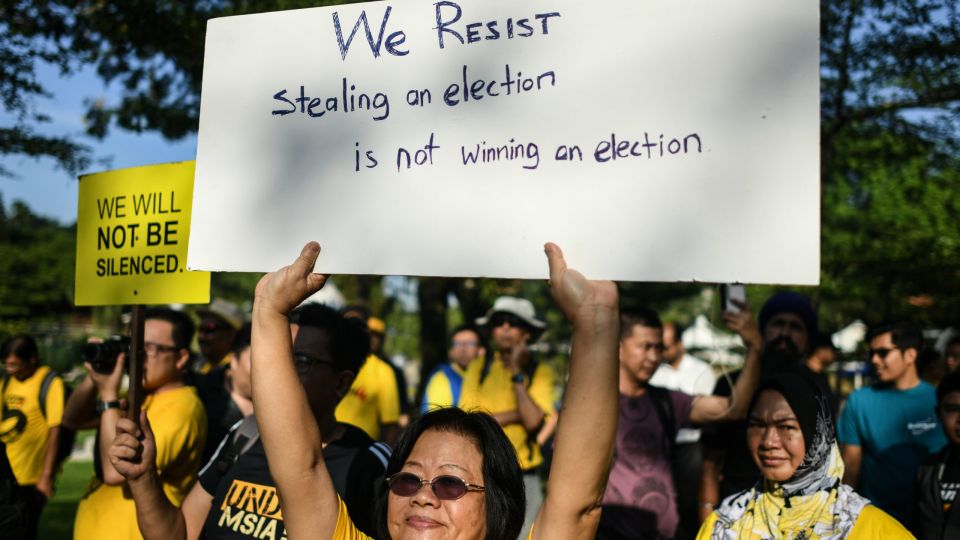March 30, 2018
Redrawing the electoral map could have unforeseen consequences in Malaysia.
The highly controversial redelineation report was tabled and passed in the Dewan Rakyat on Wednesday. There is no addition of seats in the latest redelineation exercise, but only changes to the names and electorate structure of some constituencies.
Among the 166 parliamentary seats on Peninsular Malaysia, the boundaries of 98 have been redrawn, moving with them large numbers of voters.
With the 14th general elections about to be called anytime, the redelineation is poised to become a crucial factor that will affect the final outcome of the elections.
Take the key constituencies for instance, among the 22 parliamentary seats in Selangor, the boundaries of 18 have been redrawn. The same goes for ten out of the 11 constituencies in Kuala Lumpur.
Following the shift in electoral structure, the gap between the voter numbers in urban and rural constituencies will widen further; so will the racial make-up of individual constituencies.
The Opposition is of the opinion that the redelineation will significantly boost the winning chances of Barisan Nasional, especially in Pakatan-held Selangor. The redelineation is widely seen as a potent weapon exploited by the BN to recapture the state.
It is arguable whether the redelineation will eventually benefit BN. As a matter of fact, the chances of PH in some constituencies may also be fortified after the redelineation.
We can see from the report that the redelineation exercise will segregate the Malay and Chinese voters, which does not reflect the plurality of the Malaysian society and could have far-reaching implications on national unity.
Mixed constituencies with a more balanced racial make-up should better reflect the country’s ethnic structure, and this is essential for the voices of different ethnic groups to be heard in the assemblies through their elected reps. A constituency with an overwhelming majority of a single ethnic group will only reflect the voices of this particular ethnic group.
Putting voters of a specific ethnic group within the same constituency will also result in the local development benefiting only this particular race, making it impossible for government resources to be mobilized in a more balanced manner while further tearing our multicultural society apart.
This can be manifested in some constituencies that straddle across several local governments, and will make it very difficult for the elected reps to coordinate with the local governments involved and could affect the elected reps’ efficiency in serving their electorate.
Wide disparity in the numbers of voters could also give rise to unfairness, and is contrary to the “one man one vote” principle through gerrymandering designed to advance the interests of certain parties.
Gelang Patah will have more than 119,000 voters vis-à-vis a mean of 63,428 voters for a Johor parliamentary seat.
As for Selangor, the most populous state assembly seat Subang Jaya will even have more voters than some of the parliamentary seats in the state!
Anyway, only a simple majority is needed for the redelineation report to be passed in the Parliament, and once it is approved by the King and gazetted, it will be seen as final and not appealable in court.


